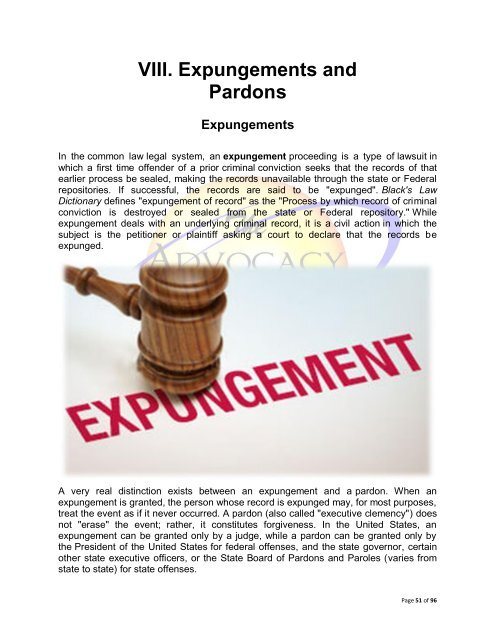Law for The Poor
Law for The Poor
Law for The Poor
Create successful ePaper yourself
Turn your PDF publications into a flip-book with our unique Google optimized e-Paper software.
VIII. Expungements and<br />
Pardons<br />
Expungements<br />
In the common law legal system, an expungement proceeding is a type of lawsuit in<br />
which a first time offender of a prior criminal conviction seeks that the records of that<br />
earlier process be sealed, making the records unavailable through the state or Federal<br />
repositories. If successful, the records are said to be "expunged". Black's <strong>Law</strong><br />
Dictionary defines "expungement of record" as the "Process by which record of criminal<br />
conviction is destroyed or sealed from the state or Federal repository." While<br />
expungement deals with an underlying criminal record, it is a civil action in which the<br />
subject is the petitioner or plaintiff asking a court to declare that the records be<br />
expunged.<br />
A very real distinction exists between an expungement and a pardon. When an<br />
expungement is granted, the person whose record is expunged may, <strong>for</strong> most purposes,<br />
treat the event as if it never occurred. A pardon (also called "executive clemency") does<br />
not "erase" the event; rather, it constitutes <strong>for</strong>giveness. In the United States, an<br />
expungement can be granted only by a judge, while a pardon can be granted only by<br />
the President of the United States <strong>for</strong> federal offenses, and the state governor, certain<br />
other state executive officers, or the State Board of Pardons and Paroles (varies from<br />
state to state) <strong>for</strong> state offenses.<br />
Page 51 of 96

















